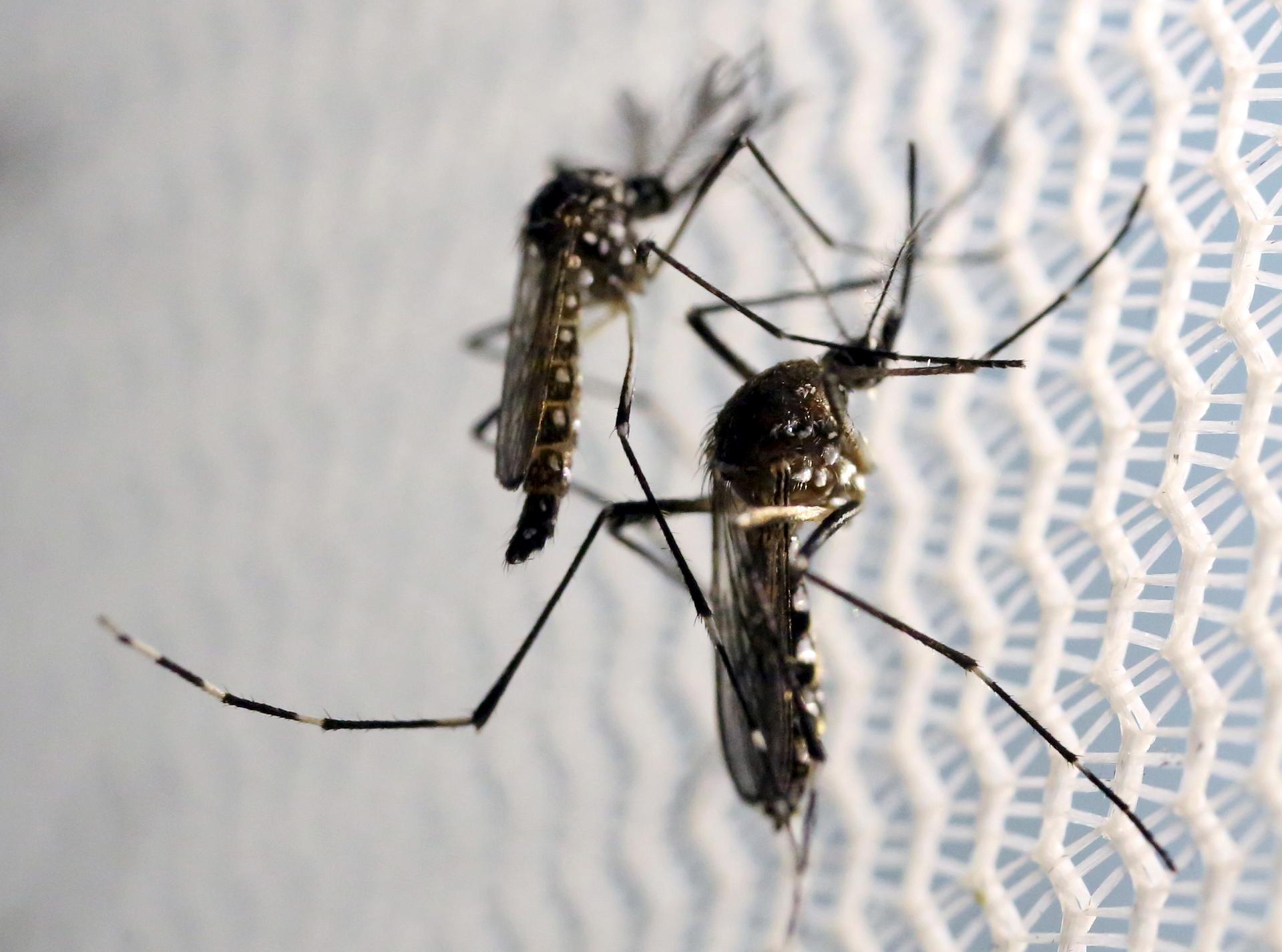In Brazil, a new Zika strategy: billboards that smell like humans and kill mosquitoes
Aedes aegypti mosquitoes inside Oxitec laboratory in Campinas, Brazil.
There’s an impressive array of creative billboards in Brazil.
One in Rio de Janeiro sprays mists of water to cool down beachgoers waiting for a bus home.
But a new innovation recently unveiled in this city is plain lethal — at least for bugs.
The Mosquito Killer Billboard attracts, traps and kills mosquitoes that carry the Zika, dengue and chikungunya viruses, according to the publicity company promoting the device.
The billboard apparently spreads a solution of lactic acid and CO2 that “replicates human sweat and breath,” which, according to its promoters, attracts mosquitoes from as far as 2.5 miles away. Fluorescent lights lure the bugs in further and then a vacuum device sucks them into the billboard, where they die of dehydration.
Take a look at the explainer video:
oembed://https%3A//www.youtube.com/watch%3Fv%3D79uqMKUoIjE
Several of the billboards have already been put up in Brazil, including one in Rio. If successful, it could become a useful gizmo in the global effort to stop the worrying spread of Zika, a virus that health officials say is linked to severe skull and brain defects in babies born in northeastern Brazil.
The billboard’s promoters claim it targets the mosquito species thought to be spreading Zika, Aedes aegypti. But, as we have reported, there’s little hard evidence that Aedes aegypti is the one, or the only one, that carries the virus in Brazil.
As of early April, researchers had not managed to find a single Aedes aegypti mosquito with Zika in this country, where the virus outbreak in the Americas was first spotted. That’s despite the Brazilian government and the World Health Organization saying for months that Zika is carried by these specific bugs. Experts say they are not yet 100 percent certain. And the distinction matters: Unlike some other common mosquitoes, Aedes aegypti bites people during the day, which is important for prevention planning.
Dr. Margareth Capurro, a mosquito researcher at the University of São Paulo, said she was close to identifying Zika in a mosquito. As of April 27, she hadn’t succeeded. “Not yet!” she wrote in an email.
Of course, the mosquito-killing billboard doesn’t just trap Aedes aegypti. It attracts other types of mosquito too. Sure, you may be hard up to find a bite victim who would cry over fewer mosquitoes on Earth. But this got us wondering: Could it also be sucking in other insects that aren’t of any danger to humans?
A spokesman for the PR company promoting the billboard said it doesn’t attract other insects.
But Maya Gupta has a different opinion. She's a longtime animal rights activist who heads the Animals and Society Institute in Atlanta (and full disclosure: she’s the sister-in-law of this correspondent).
Gupta said while the CO2-lactic acid mix will primarily attract mosquitoes, the fluorescent lights will attract all sorts of other insects.
“Although we all recognize that fighting Zika is a public health priority and that innovative and perhaps forceful approaches are needed,” she wrote in an email, “we should be cautious about casting too wide a net [or too wide a billboard, as it were] — particularly when we know how many beneficial insects are part of Brazil's incredible biodiversity.”
She added: “Historically, human approaches to eradication of a species viewed as harmful have typically failed to consider consequences to other species, sometimes with disastrous results.”
Animal rights advocates at People for the Ethical Treatment of Animals and the Humane Society declined requests for comment.
Brazilian advertising agency NBC developed the billboard and released it under a creative commons license, meaning the technology is open source and for anybody to study and use. The website for the invention contains a section with blueprints for building your own killer billboards. Skeeters, and other tiny creatures, beware.
We want to hear your feedback so we can keep improving our website, theworld.org. Please fill out this quick survey and let us know your thoughts (your answers will be anonymous). Thanks for your time!
